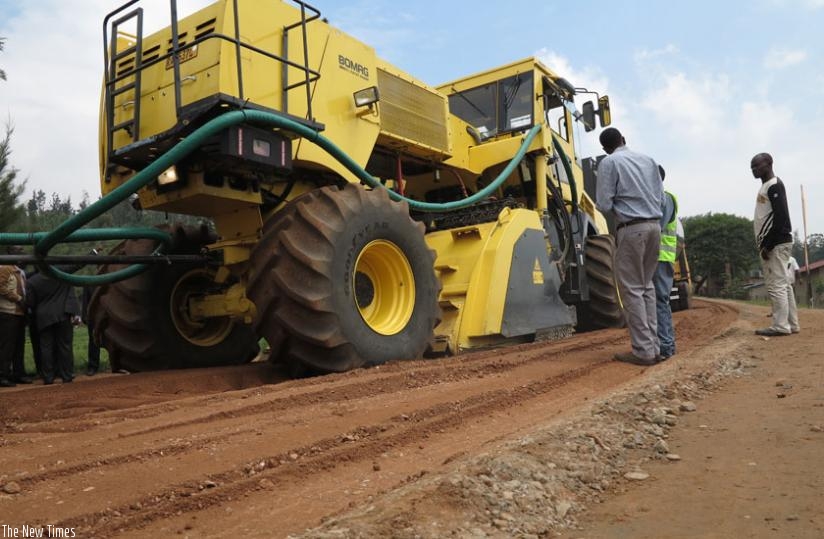The Government has called on local professionals across the service sector to up their game with view to make the most of the East African Community (EAC) Common Market Protocol.


The Government has called on local professionals across the service sector to up their game with view to make the most of the East African Community (EAC) Common Market Protocol.
Officials this week met with several actors in the professional service sector in the country, to examine challenges that hold them back with regard to taking their expertise beyond the country’s borders, particulary to the other EAC partner states.
But it was noted that, for this to happen, local professionals needed to first gain a foothold in the local service sector, since major projects were dominated by foreign contractors.
And professionals in attendance acknowledged they have a long way to go.
The observations came up during a national consultative meeting on the issue–the first of its kind– in Kigali on Tuesday.Eng. Fred Rwihunda, the president of Institution of Engineers Rwanda (IER), said despite the existing framework under the Common Market Protocol, which eases movement of labour among citizens of member states, few Rwandan professionals are crossing borders and getting employed in the other partner states.
He attributed this mainly to lack of organisation and what he described as a poor mindset, which they need to act up on, if they are to maximise the benefits that come with regional intergration.
"Are we even satisfying the Rwandan market before we cross the border? Even various projects here are handled by foreigners,” Rwihunda said.
Rwandan professional service providers, he said, should first get organised and smarter before attempting to venture into the wider region.
The forum was convened so that the Ministry of East African Community can understand why, among others, local professional services are not taking advantage of the EAC market.
Professional services under the Common Market Protocol comprise medical, legal, accounting, auditing, book keeping and taxation, education, veterinary, in addition to construction, architectural, quantity surveyors, urban planners, and engineers’ services.
A services sector review report on Rwanda by the United Nations Conference on Trade and Development (UNCTAD) 2013, said the sector was the largest and most dynamic in the national economy.
In 2014, the GDP share of the services sector in Rwanda was 47 per cent.
But Valentine Rugwabiza, the Minister for East African Community (MINEAC) clarified that, however, impressive this figure is, it does not tell the real story, especially as most of it was from tourism and construction while professional services were "almost nowhere.”
The contribution of professional services to GDP, she said, is so insignificant that it is very difficult to capture in terms of percentage.
"And the reason we are emphasising on professional services is because it is a sector that has a huge potential in terms of real growth,” Rugwabiza said.
In 2010, EAC states signed the CMP with the liberalisation of professional services being part of the protocol. It was agreed that by the end of this year, all member states would have completely implemented all elements of the protocol.
‘‘Even though Rwanda is doing fairly well in some sectors of CMP such as trade in goods, when it comes to trade in services– especially professional services– there is a huge room for improvement,’’ she added.
Highlighting the status of regulation of professional services committed by Rwanda under the EAC Common Market protocol, Happy Mukama, a legal advisor in the ministry, said only accountants and architects have succeeded in implementing of existing Mutual Recognition Agreements (MRAs) between professionals in EAC.
The MRAs are international agreements by which two or more countries agree to recognise one another’s conformity assessments.
"This is a flourishing sector within the EAC and we don’t want to miss out simply because we are confronted with some constraints,” Amb. Rugwabiza said.
Dr Kayitesi Kayitenkore, the chairperson of Rwanda Medical Association (RMA), informed the forum that, for example, the medical sector is, to a certain extent, divided, which she attributed to the prevalent weaknesses.
Dr Julianna Kantengwa, a legislator who attended in her capacity as a veterinary physician, suggested that investing time and money in the organisation of the local professional services sector would be imperative.
"It is in the interest of government and it is in the interest of the private sector. Invest your time and resources in having strong associations.” she said.
editorial@newtimes.co.rw


